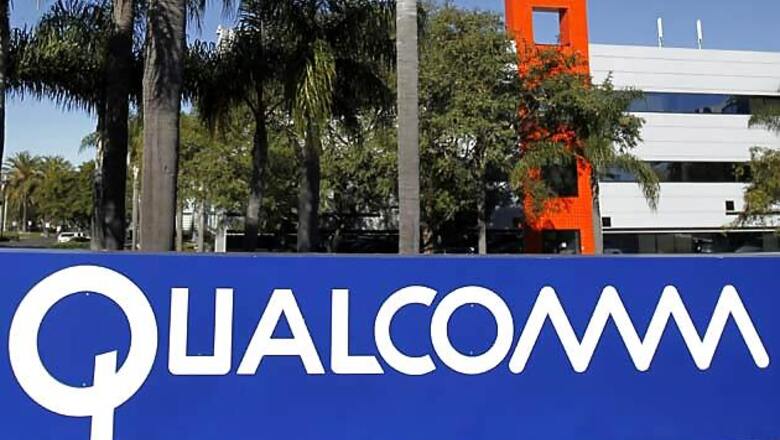
views
San Francisco: Qualcomm Inc said it will make smartphone chips with 64-bit features typically found in personal computers, following Apple Inc and opening the way to more efficient mobile gadgets.
Qualcomm said its new Snapdragon 410 component will also include 4G cellphone connectivity technology and be aimed at the fast-growing Chinese market, where it should start appearing in low-cost smartphones in the second half of 2014.
Along with 4G, 64-bit technology will become standard across Qualcomm's products, said Michelle Leyden Li, a Qualcomm senior director in charge of marketing its Snapdragon line.
Led by Apple's iPhones, the smartphone industry's evolution toward 64-bit chips reduces the gap between low-power mobile processors and punchier chips used in laptops, desktop PCs and servers.
Samsung Electronics Co Ltd has also said it plans to use 64-bit processors in its smartphones.
Processors with 64-bit features can take advantage of more memory than 32-bit processors now found in most mobile devices, potentially letting them work faster and more efficiently.
Current smartphones don't have enough memory to give 64-bit processors an advantage of 32-bit chips, but future phones probably will include enough memory to give the 64-bit processors a performance boost.
Taking advantage of 64-bit processors also requires changes to software originally designed for 32-bit processors.
"It's a little bit chicken and the egg," Leyden Li said. "We see this transition happening and we want to be there to help enable the ecosystem."
In September, Apple unveiled its first iPhone made with a 64-bit processor, leading to speculation the company plans to merge its iOS mobile platform with the operating system used for its Mac laptop and desktop personal computers. Future Macs could be built with the same line of chips Apple that uses in its iPhones and iPads.
Intel Corp already includes 64-bit features in its mobile chips but the company's "x86" architecture has failed to catch on in smartphones and tablets. A competing, low-power architecture has been licensed to chipmakers by Arm Holdings Plc and has become ubiquitous in devices.




















Comments
0 comment